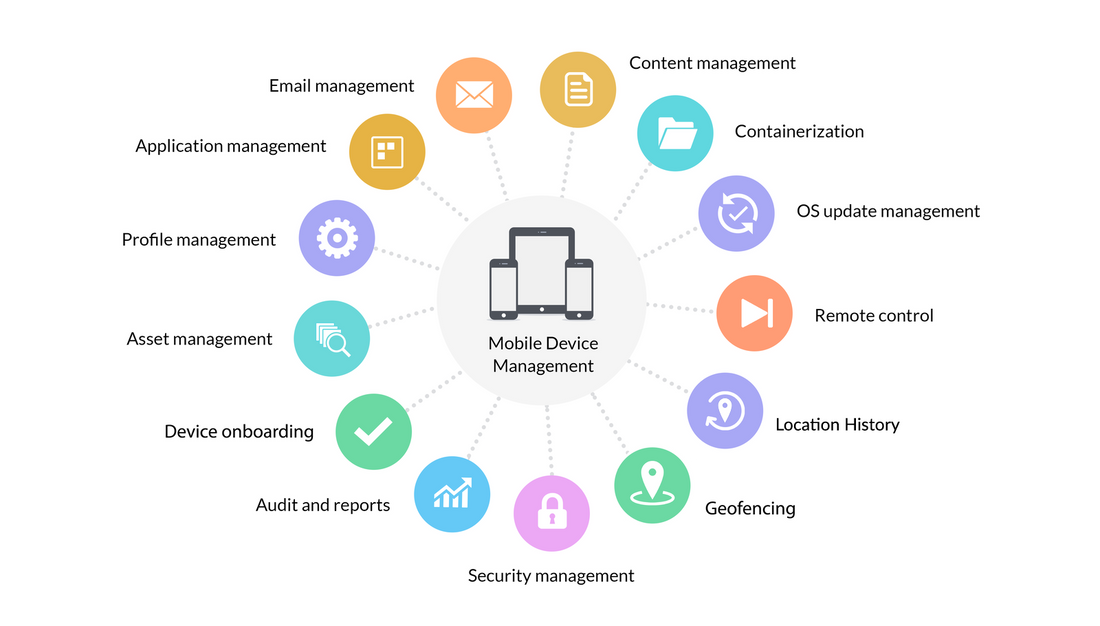
Mobile Device Management (MDM): Strategies for Securing and Managing Corporate Devices
Share
In today's interconnected world, where smartphones and tablets have become ubiquitous in both personal and professional settings, the need for robust Mobile Device Management (MDM) strategies has never been more critical. MDM encompasses a suite of technologies and policies designed to secure, monitor, manage, and support mobile devices deployed across an organization. This blog explores the importance of MDM and outlines effective strategies for ensuring the security and efficient management of corporate devices.
### The Importance of Mobile Device Management (MDM)
Mobile devices offer unparalleled convenience and flexibility, allowing employees to remain productive while on the move. However, their widespread adoption has introduced significant security challenges for businesses:
1. **Data Security**: Corporate data accessed or stored on mobile devices can be vulnerable to breaches if devices are lost, stolen, or compromised.
2. **Compliance**: Industries such as healthcare and finance must adhere to strict regulatory requirements regarding data protection and privacy.
3. **Device Management**: IT departments need efficient ways to provision, configure, update, and troubleshoot mobile devices at scale.
### Strategies for Effective MDM
Implementing a comprehensive MDM strategy involves combining technological solutions with clear policies and procedures. Here are key strategies to consider:
#### 1. **Device Enrollment and Configuration**
- **Automated Enrollment**: Utilize platforms that support automated enrollment (e.g., Apple Business Manager, Android Enterprise) to streamline device setup and configuration.
- **Configuration Profiles**: Implement standardized configuration profiles to enforce security settings, such as passcode requirements, encryption, and app permissions.
#### 2. **Security Measures**
- **Mobile Security Policies**: Define and enforce policies that govern acceptable device usage, including guidelines on accessing corporate resources from personal devices (BYOD).
- **Remote Wipe and Lock**: Enable capabilities for remote wiping and locking of devices in case of loss or theft to prevent unauthorized access to sensitive data.
#### 3. **Application Management**
- **App Whitelisting/Blacklisting**: Maintain control over which applications can be installed on corporate devices to mitigate security risks associated with malicious or non-compliant apps.
- **App Distribution**: Use MDM solutions to securely distribute and update internal applications, ensuring employees have access to the latest software versions.
#### 4. **Monitoring and Compliance**
- **Device Monitoring**: Continuously monitor devices for compliance with security policies and detect anomalies that may indicate a security breach.
- **Auditing and Reporting**: Generate reports on device inventory, security incidents, and compliance status to maintain transparency and accountability.
#### 5. **User Education and Support**
- **Training Programs**: Educate employees on best practices for mobile device security, such as recognizing phishing attempts and safeguarding sensitive information.
- **Support Mechanisms**: Provide accessible support channels for resolving technical issues and addressing security concerns related to mobile devices.
### Conclusion
In conclusion, while mobile devices enhance productivity and flexibility in the workplace, they also pose significant security risks that must be mitigated through effective Mobile Device Management strategies. By adopting robust MDM solutions and implementing comprehensive policies, organizations can ensure the secure and efficient management of corporate devices, safeguarding sensitive data and maintaining regulatory compliance.
By staying proactive and adaptive in their approach to MDM, businesses can harness the benefits of mobile technology while safeguarding their most valuable assets—data and reputation. Implementing these strategies not only enhances security but also promotes a culture of responsibility and awareness among employees regarding mobile device usage in corporate environments.

1 comment
For corporate devices to be secure, MDM strategies must be effective. Businesses can protect sensitive information while maintaining device functionality and employee productivity by implementing centralized control, remote access management, and data encryption.